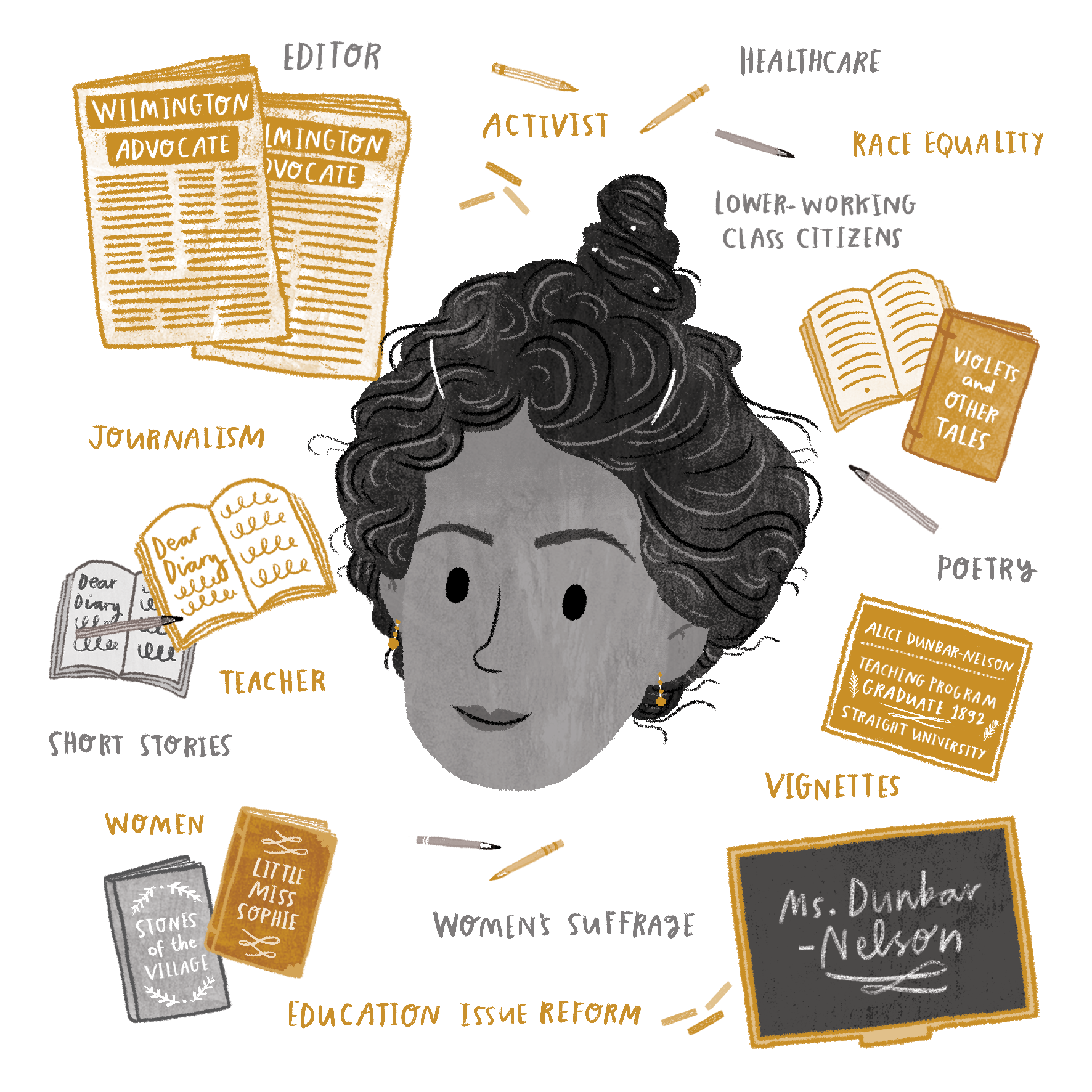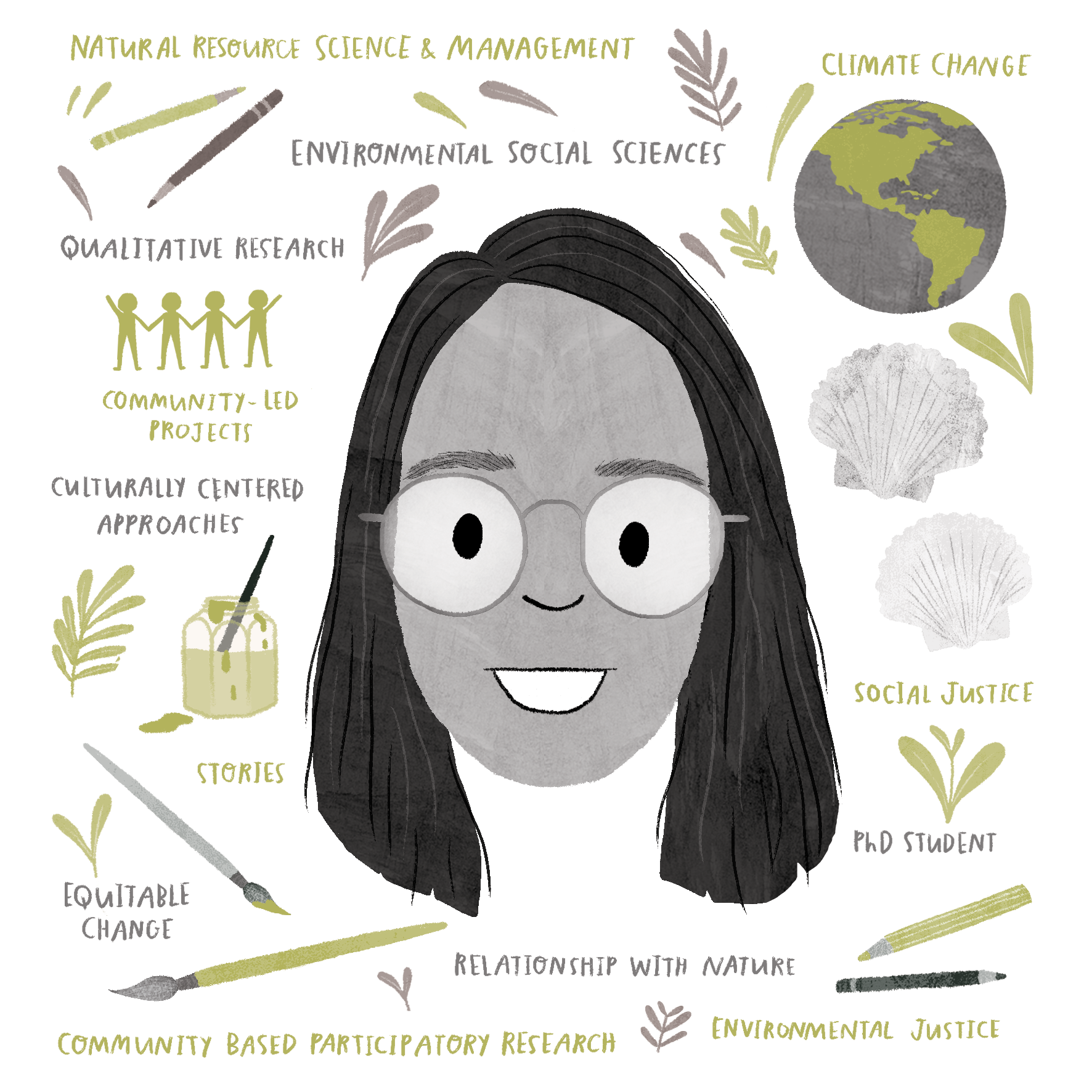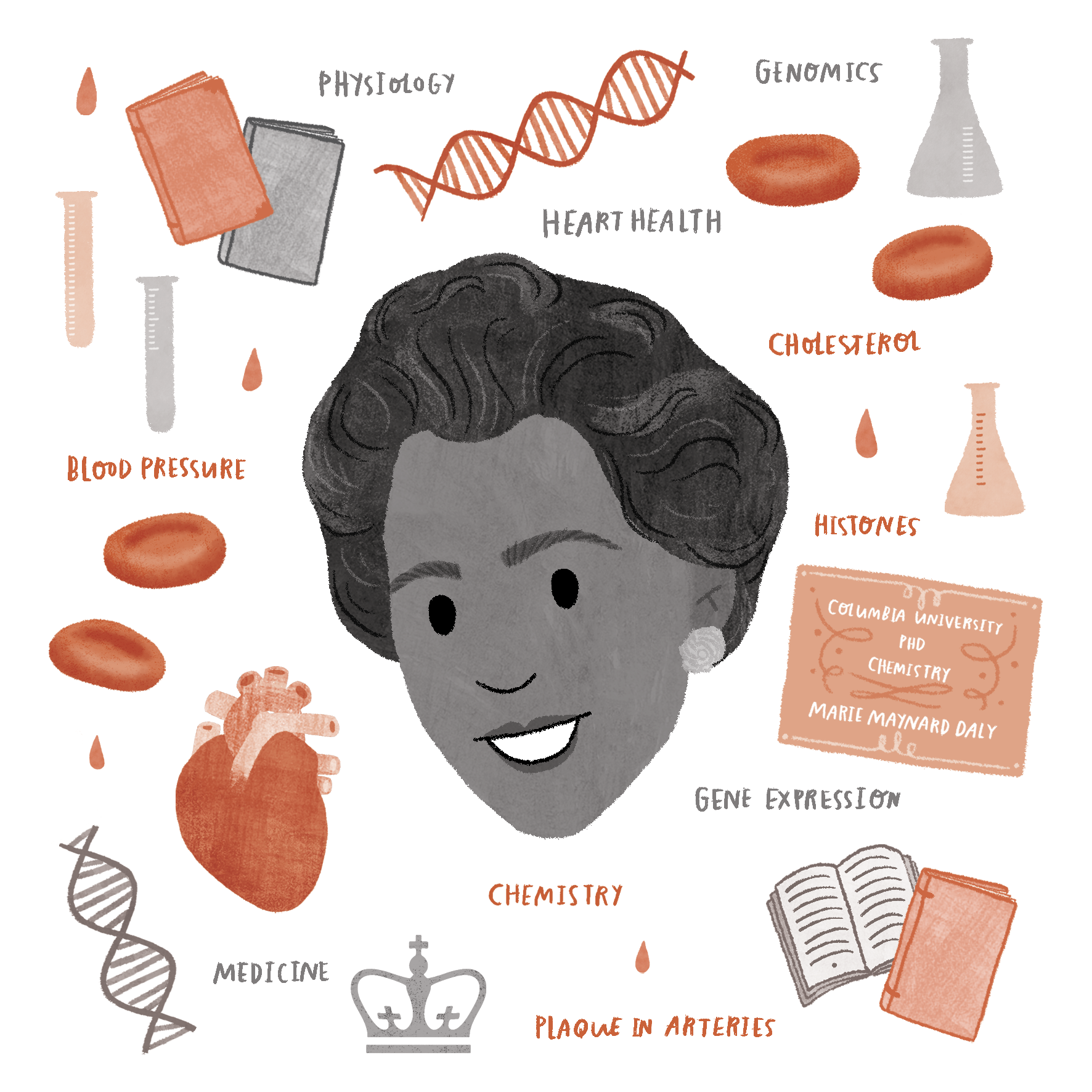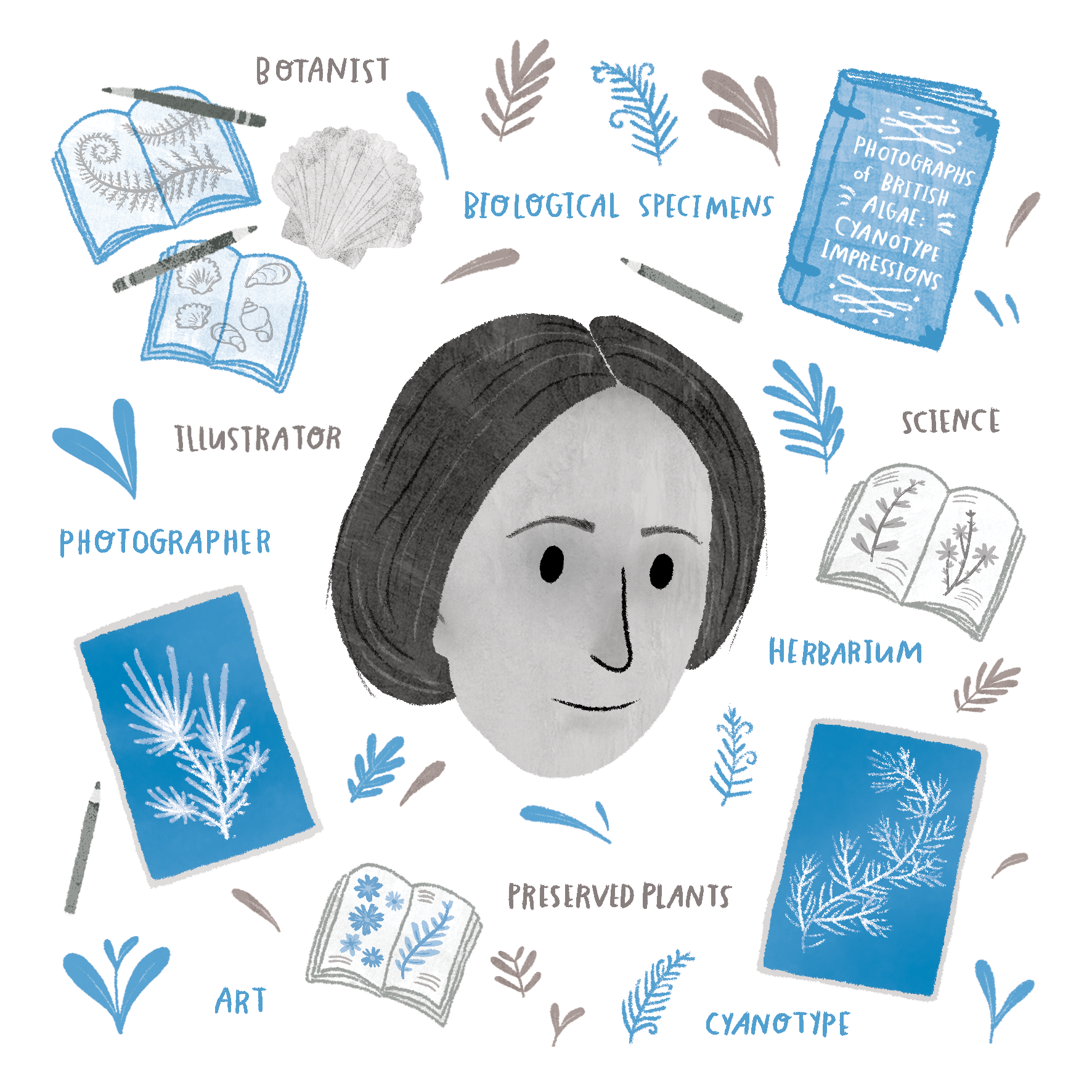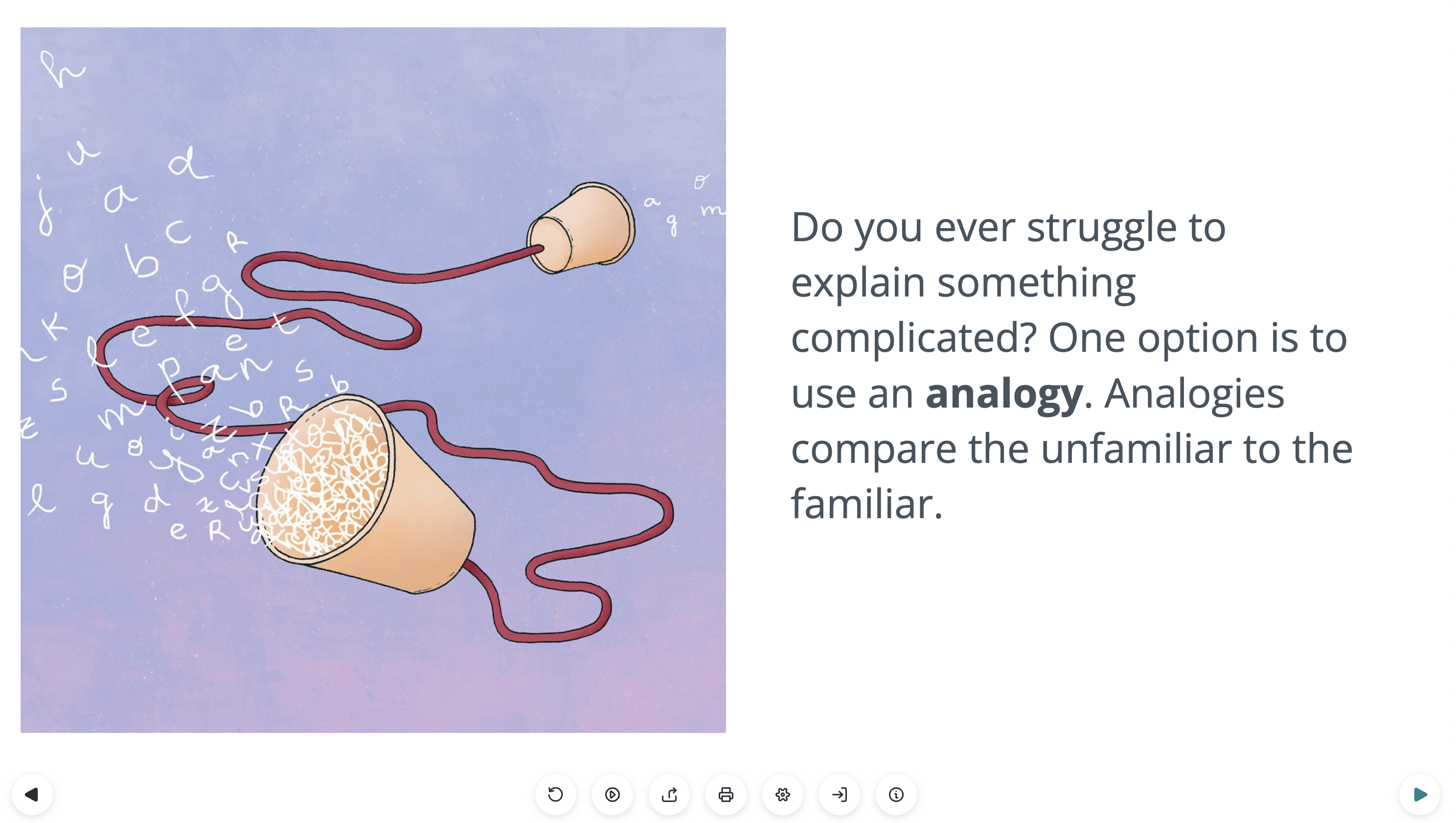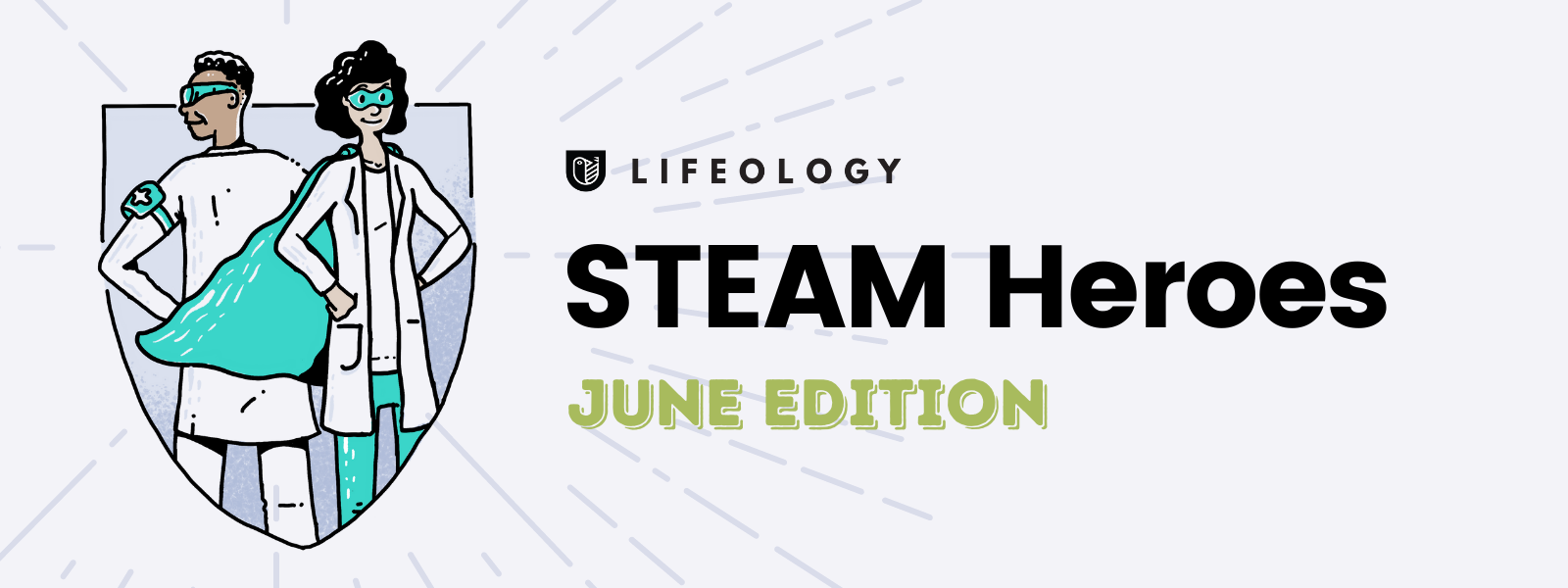
People in STEAM (science, tech, engineering, arts, and math) are blazing trails—both people from history and in the world today. We want more people to know about these people and their excellent but often under-promoted work, including children (and adults!) who might dream of careers in STEAM fields!
First, we have a Historic STEAM Heroes Lifeology card deck! Each month, we feature a new person from history in this living digital card deck. These people often faced adversity and overcame obstacles to become the STEAM heroes that they are today!
Is there someone from history that you would like to nominate? Help us curate examples of historic steam heroes from around the world—not just Western culture. You can nominate here.
We’ve also partnered with 500 Women Scientists to feature women and gender diverse folks from their Gage search platform in a unique Lifeology card series: Gage Scientists Who Inspire! 2022.
Keep reading to learn about the women featured for the month of June!
Alice Dunbar-Nelson
July 19, 1875, New Orleans, Louisiana to September 18, 1935, Philadelphia, Pennsylvannia
Alice Dunbar-Nelson is featured in our Historic STEAM Heroes course. Dunbar-Nelson was a teacher, writer, diarist and activist. Her activist work helped lower-working class citizens and women. She was a voice for Black people during the time of Jim Crow laws, and she fought for healthcare and education reform across the country.
Dunbar-Nelson was born in Louisiana, United States. She attended Straight University (now known as Dillard University) to become an elementary school teacher. She was part of the one percent of first-generation free African Americans to earn a college degree. She spent most of her life in the northeast United States, moving to New York and eventually Delaware. Near the end of her life, she moved to Philadelphia, Pennsylvania.
After graduating from college, Dunbar-Nelson began publishing poems and vignettes. Violets and Other Tales discussed Creole life and life as a woman during this time. She also wrote Stones of the Village, which was about living biracial. Later in life, her writing took the form of essays and journalist endeavors. This was a natural progression as she shifted into more activism. She wrote about politics in Delaware as well as how Black women’s involvement in war-related tasks.
Dunbar-Nelson wrote and edited for journals, newspapers and magazines. Through her commentary and criticisms, she offered insight into the thoughts of the Black community. She was editor of a woman’s column in a New Orleans’ journal and a regular contributor to the Associated Negro Press. She also served as editor of a newspaper called the Wilmington Advocate.
Through her writing and her work with organizations such as the National Association of Colored Women, the National Federation of Colored Women’s Club and the Woman’s Suffrage Party of York County, Dunbar-Nelson fought for women’s suffrage, better lives for Black veterans, Black history teachings in schools and more. In 1928, she became the Executive Secretary of the American Friends Inter-Racial Peace Committee.
She traveled across the country speaking about healthcare and education issues, hoping to reform the systems. She was also an avid diarist, writing detailed accounts of her life and experiences, including her relationships with her three husbands and a prominent educator, Edwina Kruse. She survived sexual assault, partner violence, police violence as well as discrimination. Despite these obstacles, Dunbar-Nelson achieved a lot and left behind a legacy.
Read More about Alice Dunbar-Nelson:
Jessica Tran
Jessica Tran is featured in our Gage Scientists Who Inspire! 2022 deck. She is a student at the University of Minnesota, Twin Cities studying Natural Resource Science and Management. She is also a member of the gage search platform.
In her work, Jessica focuses on community-based participatory research (CBPR) and how community-led projects lead to meaningful and equitable change. She does this through interviews and focus groups.
She works directly with communities that are most directly impacted by things like climate change. Her work helps create culturally-centered approaches to addressing environmental justice and social justice issues.
“I am constantly humbled and honored by people’s trust to share their stories and perspectives about the environment with me. Qualitative research is like weaving a tapestry. Everyone’s stories connect to a broader narrative on our relationships with nature and nature’s relationship with us.” – Jessica
When Jessica is not studying and improving environmental social sciences, she can be found painting and drawing. She is also a current fellow of the 500 Women Scientists Fellowship for the Future.
Fun fact about Jessica: Her favorite animals are scallops! She says they are underrated, and the way they swim is spectacular!
